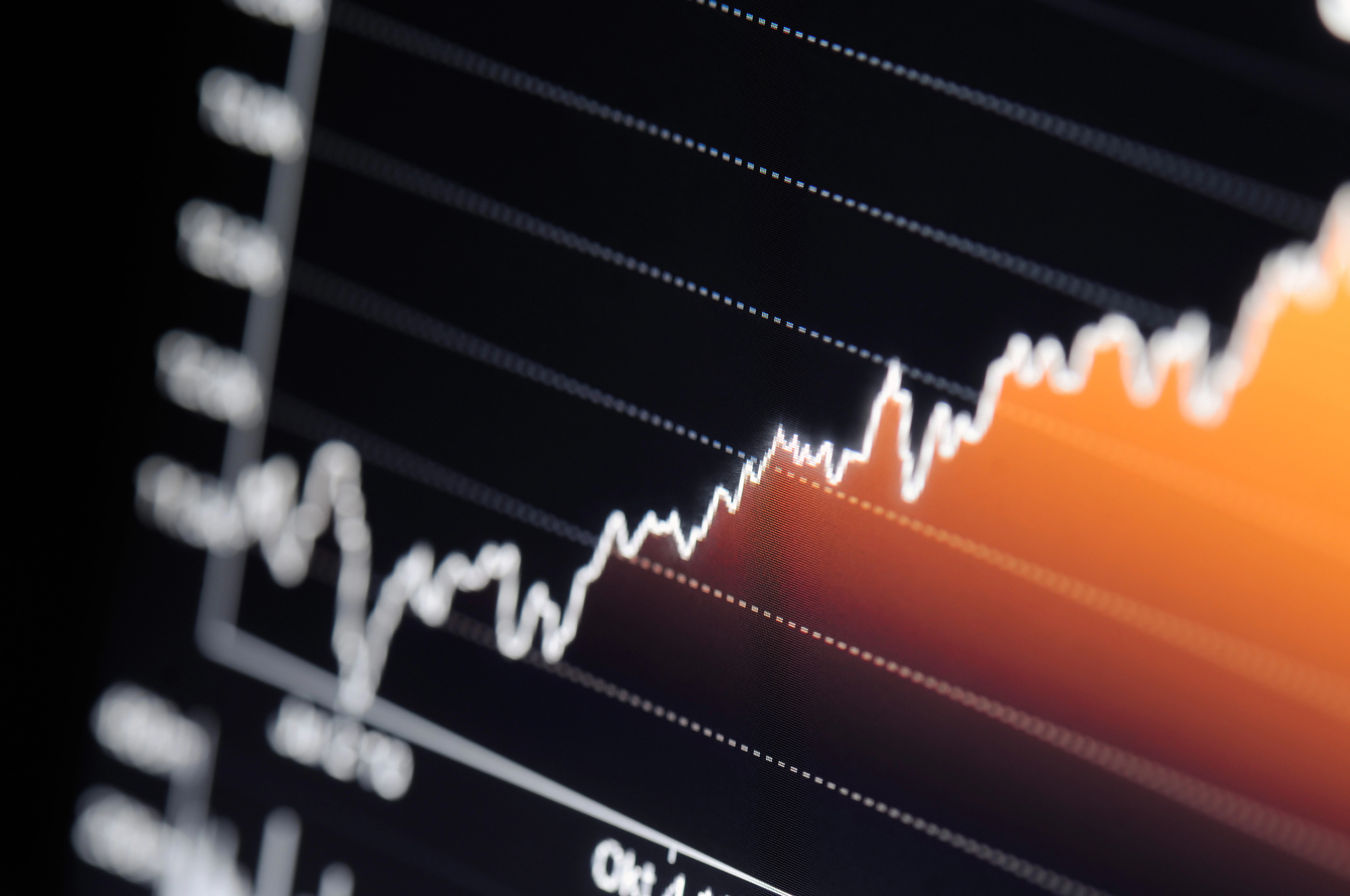We are economists with expertise in analyzing how different economic policies shape economic development. From this professional perspective, we have written about the importance of structural reforms, macroeconomic stability, and fiscal discipline in Ukraine.
Exactly one year ago, we praised the Ukrainian public and the state for their commitment to building a democratic and prosperous nation. We praised the success in attaining macroeconomic stabilization and restoring economic growth under extremely adverse circumstances, including endemic structural distortions in the economy and enormous exogenous political, economic, and security shocks.
Today, this progress is in danger. This year inflation is expected to be above the inflation target set by the National Bank and might even exceed the inflation last year, there are signs that the economic growth is slowing down, the IMF program is de facto on hold, and there are delays in financial support from other international allies.
The executive branch of the government has multiple positions unfilled; several ministers and the heads of the critical regulators serve in the acting capacity. The executive branch of the government has multiple positions unfilled; several ministers and the heads of the critical regulators serve in the acting capacity. There are vicious attacks on the newly formed anti-corruption bodies, including NABU; the progress in prosecution of corrupt officials is slow. The government and the politicians are using increasingly populist rhetoric.
This is a critical moment for Ukraine. If the people of Ukraine and its leaders do not find strength to persevere on the path of structural reforms and do not show clear progress, all the positive change in the economy and the society that have been achieved at such an enormous cost will be lost. The inability of the government and the politicians to stay the course will encourage the reactionary forces and the international enemies of Ukraine to double down in their effort to undermine Ukraine. The population will continue to become disillusioned with the current leadership, in all branches of government, opening the door to the reactionary, pro-Russian forces to regain power. There will be no winners.
This is a critical moment for Ukraine. If the people of Ukraine and its leaders do not find strength to persevere on the path of structural reforms and do not show clear progress, all the positive change in the economy and the society that have been achieved at such an enormous cost will be lost.
In response to these risks, the government and the politicians are desperately searching for quick ways to ensure economic growth and prosperity for Ukrainians. Minimal salaries and pensions have been increased with further increases discussed. There are multiple proposals about state support for the industry.
We stand united with the government of Ukraine in their desire and efforts to start up the Ukrainian economy. We, however, do not see an alternative to structural reforms that remove market distortions, equal out the rules of the game for all market players, and strengthen the foundations of the society through reforms in education, retirement support, health care, state governance, and judicial system.
There is no holy grail, a single decision or a policy that will make the Ukrainian economy and citizens prosperous over night. It is an illusion that preferential tax breaks or subsidies to strategic industries, higher state salaries or pensions, barriers to entry for foreign businesses to favor Ukrainian producers, or, say, control of food prices will do anything to fundamentally strengthen the economy. All immediate gains will be dissipated through higher inflation, corruption and misappropriation of funds, and distortion and suppression of competition and investment.
All immediate gains will be dissipated through higher inflation, corruption and misappropriation of funds, and distortion and suppression of competition and investment.
Let us consider an example: Bill 7206 “Buy Ukrainian”. The bill proposes to give preferential treatment in public procurement to those suppliers who can demonstrate that a substantive part of their production is connected (localized) in Ukraine. The idea behind the bill is to support Ukrainian producers, hoping that this support will lead to economic growth.
There are multiple well-understood classic problems with this approach and the bill specifically.
1. No guarantee the bill will help economic growth. There is no assurance that the increased revenues of the Ukrainian producers will be invested in Ukrainian economy. In fact, the opposite might happen. Protection of the Ukrainian businesses might undermine their incentives to invest in new technology to stay competitive; the rents from the law may be diverted away from the economy to offshore companies, increasing pressure on the exchange rate.
2. Inflation and losses for the budget. The burden of the support will fall on the state owned enterprises that will now pay higher prices for their supplies. This will decrease the amount of taxes they pay to the state and increase the retail prices on their products. Hence, even though the bill appears not to be financed through the budget, it introduces a hidden distortion in the economy that will be financed through lower revenues to the budget in the future and will lead to inflation. The structure of the bill does not allow limiting neither inflation (retail price growth) nor the losses to the budget (through lower taxes). This is just bad practice. Any state support should be done in a transparent manner through the budget process, subject to the political oversight by the parliament. Furthermore, the direct support through subsidies to specific enterprises is less distortionary than the mechanism proposed in this bill (but is still a bad idea given the current institutional development of Ukraine).
The burden of the support will fall on the state owned enterprises that will now pay higher prices for their supplies. This will decrease the amount of taxes they pay to the state and increase the retail prices on their products.
3. Corruption. The bill is vague about the qualification requirements to receive preferential treatment. The implementation of the favorable treatment thus will be left in the hands of the officials at the state owned enterprises and the relevant regulatory authorities. These decisions are likely to be influenced by vested interests. These interests are the very reason why Ukraine has been held back for so long. Until the Ukrainian bureaucracy is safe from the undue political and commercial influence, the critical risk remains that the allocated resources will be simply diverted through “the right” companies to private enrichment.
4. Violation of the international treaties and threats to business climate.In order to improve the investment and business climate, the government must demonstrate consistency and stay on course of the reforms. Every time the government wavers and considers reversing its policies back to the old approach of preferential treatments and government financial support, the markets respond negatively. Furthermore, restricting access to Ukrainian markets is an isolationist economic policy and violates a number of international treaties including the principles laid out in our treaties with the EU for which the Ukrainian public has sacrificed so much.
Furthermore, restricting access to Ukrainian markets is an isolationist economic policy and violates a number of international treaties including the principles laid out in our treaties with the EU for which the Ukrainian public has sacrificed so much.
There is no alternative to staying on course, maintaining macroeconomic stability and fiscal discipline, restoring the rule of law, and letting the markets do their job of economic development. We support the Ukrainian authorities on their path of the structural reforms. We hope that Ukrainian economy will turn around and the public will realize the benefits of the unpopular yet sound economic policies and reforms that the Ukrainian government has undertaken over the last three years.
Signatories (on Dec 4th)
- Тимофей Милованов, PhD, Kyiv School of Economics and University of Pittsburgh, VoxUkraine
- Yuriy Gorodnichenko, PhD, University of California at Berkeley, Kyiv School of Economics, VoxUkraine
- Natalija Shapoval, Vice President for Policy, Kyiv School of Economics
- Ilona Sologoub, Director for Research, Kyiv School of Economics
- Vladyslav Rashkovan, Alternate Executive Director, International Monetary Fund
- Volodymyr Omelyan, Minister of Infrastructure of Ukraine
- Max Nefyodov, First Deputy Minister of Economy
- Natalie Jaresko, Ex Minister of Finance
- Aivaras Abromavičius, Ex Minister of Economy and Trade
- Андрій Журжій, Member of Parliament of Ukraine
- Oleksandr Opanasenko, Member of Parliament of Ukraine
- Григорий Шверк, Member of Parliament of Ukraine
- Lena Sotnyk, Member of Parliament of Ukraine
- Сергій Лещенко, Member of Parliament of Ukraine (subject to qualifications on corruption and other critical issues, see comments below)
- Ostap Yednak, Member of Parliament of Ukraine
- Mustafa Nayem, Member of Parliament of Ukraine
- Lev Pidlisetskyy, Member of Parliament of Ukraine
- Svitlana Panaiotidi, State Commissioner of the Antimonopoly Committee of Ukraine
- Yuliya Kovaliv, National Investment Council
- Yuriy Vitrenko, CCO Naftogaz
- Pavlo Sheremeta, Ex Minister of Economy of Ukraine
- Pavlo Kukhta, Deputy Head of SAGSUR
- Andrii Dligach, The New Country Civil Platform
- Vladyslava Rutytska, Vice President SigmaBleyzer Investment Group, Member of the National Council of the Reforms
- Yuriy Husyev, Advisor to the Minister of infrastructure of Ukraine, deputy Minister of Defense of Ukraine (2015-2016)
- Roman Shpek, Independent Association of Banks of Ukraine
- Валерій Пекар
- Taras Kachka
- Roman Bondar
- David Braun
- Yevhen Bystrytsky
- Илья Михайлов
- Oleksa Stepaniuk, Kyiv School of Economics
- Artur Kovalchuk, Kyiv School of Economics
- Ksenia Alekankina, Kyiv School of Economics
- Oleksandr Talavera, PhD, University of Swansea and VoxUkraine
- Vitaliy Shapran
- Тарас Козак, Президент Інвестиційної Групи “УНІВЕР”
- Olena Nizalova, PhD, University of Kent and VoxUkraine
- Denys Nizalov, PhD, University of Kent and VoxUkraine
- Oleksandr Zholud
- Boris Davidenko, CEO of VoxUkraine
- Alex Lissitsa
- Vladimir Dubrovskiy, Senior Economist at CASE Ukraine and the Chief Expert at the Group on Tax and Budget Reform of the Реанімаційний Пакет Реформ – РПР
- Ганна Онищенко
- Nelly Stelmakh
- Andriy Taranov
- Natalya Mostepanyuk, Kyiv School of Economics
- Mykyta Kazimirov
- Ruslan Korzh
- Oleksandr Akymenko
- Roman Basalyha, VoxUkraine
- Максим Пынтя
- Ihor Shelevytsky
- Dmytro Iarovyi, Kyiv School of Economics
- Vladimir Kadygrob, Zeitgeist Design
- Катерина Венжик, hromadske
- Yuriy Chernyavskyy
- Veronika Movchan, IER and VoxUkraine
- Anna Furman, Kyiv School of Economics
- Vlad Honcharov
- Yaroslav Kudlatskiy, Kyiv School of Economics
- Iryna Vernyhora
- Oleg Platonovsky
- Oksana Monastyrska
- В’ячеслав Зражевський
- Nataly Zaika, Kyiv School of Economics
- Maria Barabash
- Vladyslav Vlasiuk
- Alexander Petrov
- Andriy Talama
- Dmitry Kolodyazhny
- Olga Kryvoruchko
- Панько рудий
- Laure Babyak
- Andrey Perlov
- Kostiantyn Zahorulko, Kyiv School of Economics
- Dmytro Kulibaba
- Ihor Yaskal
- Dmytro Ilin, University of Pittsburgh
- Olesia Verchenko, Vice President for Economics Education, Kyiv School of Economics
- Viktor Taran
- Mariia Makhnovets
- Oleksandr Prykhodko
- Ivan Prymachenko, Prometheus
- Tatyana Shevtsova
- Hanna Vakhitova, PhD, Kyiv School of Economics
- Volodymyr Vakhitov, PhD, Kyiv School of Economics
- Mykola Ryzhenkov, University of Mannheim
- Roman Sulzhyk
- Andriy Borodiy
- Lena Minitch, Advisor to First Vice Prime Minister
- Alla Savchenko, Президент BDO Ukraine, Голова Наглядової Ради Федерації бухгалтерів та аудиторів України
- Olga Nikolaieva, Kyiv School of Economics
- Viktor Koziuk
- Anton Senenko
- Dmitry Goryunov
- Наталія Доманська
- Максим Васечко
- Ірина Кельнер
- Олександо Коломієць
- Євгеній Фурса
- Дарина Марчак
- Анастасія Бойчук
- Олександр Сухомлин
- Євген Сальмін
- Віталія Яремко
- Марина Руденко
- Андрій Ставніцер
- Олена Коробкова
- Галина Степанюк
- Андрій Бойцун, PhD, Strategic Advisory Group for Supporting Ukrainian Reforms (SAGSUR), Vice-President of Ukrainian Corporate Governance Academy (UCGA)
- Олег Загнітко
- Михайло Соколов
- Олександр Длухопольський
- Антоніна Стародуб
- Людмила Шипович
- Сергій Головко
- Яна Бойцова
- Олена Білан
- Альона Береза, head of the NGO “Women’s anti-corruption movement”
- Ірина Левинська
- Тарас Керечан
- Дмитро Яблоновський, Центр економічної стратегії
- Роман Мотичак
- Максим Сухар
- Олександр Харченко, директор Центру досліджень енергетики
- Олена Беседіна
- Ярослав Юрчишин
- Гліб Вишлінський
- Alex Dayrabekov
- Надія Рижак
- Анна Білик
- Антон Ященко
- Олександр Романко
- Ірина Піонтківська
- Роман Ващук
- Віталій Проценко
- Богдан Терещенко
- Роман Шпек
Main picture: depositphotos.com / etiamos
Attention
The authors do not work for, consult to, own shares in or receive funding from any company or organization that would benefit from this article, and have no relevant affiliations




